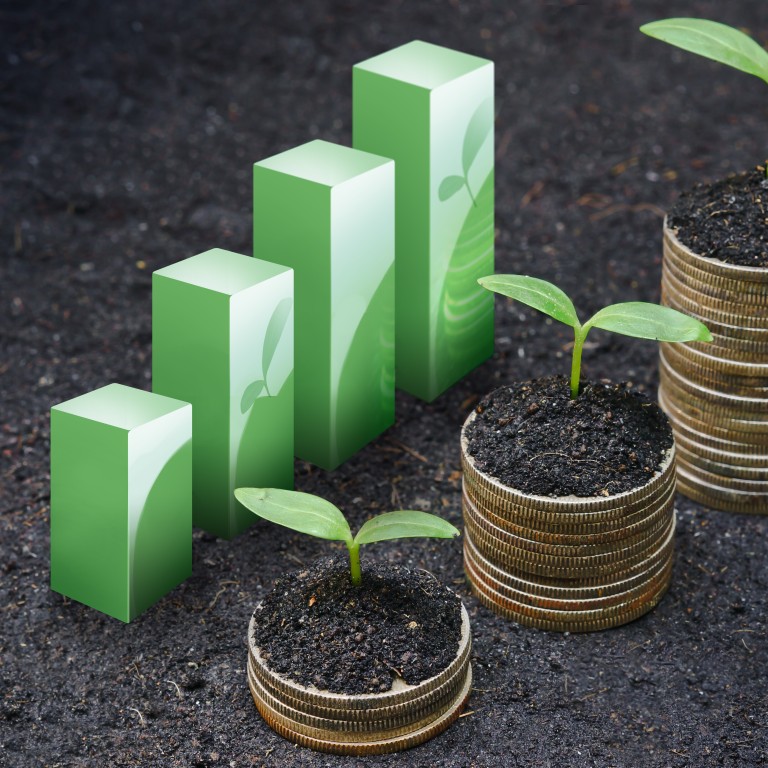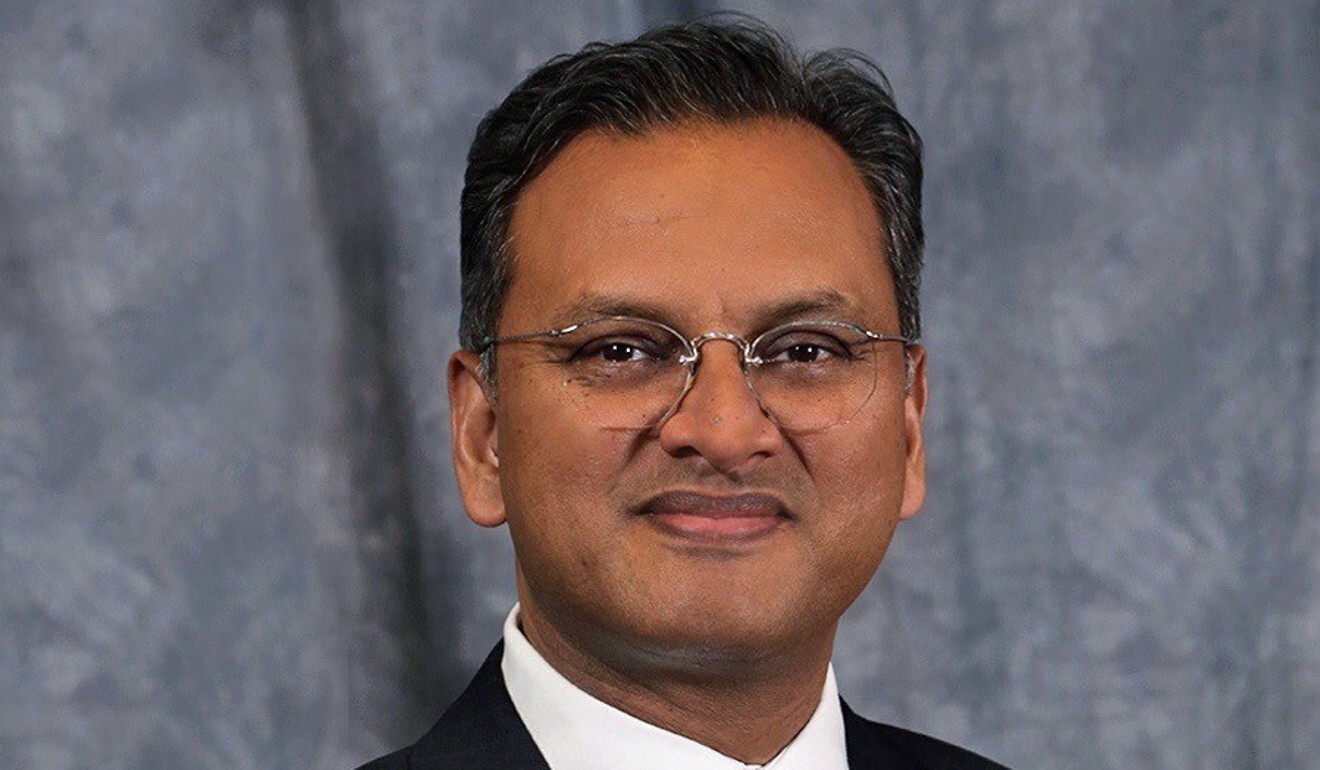
Asia-Pacific firms can become ESG global citizens, Deutsche Bank regional ESG head says
- Deutsche Bank wants sustainability to be an important part of portfolio construction, investment strategy, according to APAC ESG head
- Asia-Pacific companies can use ESG to establish themselves as ‘global citizens’, Kamran Khan says
From manufacturing clothing in sweatshops to poor environmental practices, Asia-Pacific businesses have lagged behind the rest of the world for years on environmental, social and governance (ESG) matters.
But, Kamran Khan, Deutsche Bank’s new Asia-Pacific ESG head, sees an opportunity for the region’s companies to reshape their tarnished reputation and differentiate themselves by installing state-of-the art, environmentally friendly technology that allows them to leapfrog their European and North American competitors.
Asian investors and businesses are increasingly considering how to address environmental and social factors at the start of their discussions about investing in projects or constructing portfolios, rather than trying to screen out bad actors late in the game, Khan said.
“This is an opportunity for them [to say] I can establish myself through ESG as a global citizen,” Khan said. “It is an opportunity for Deutsche Bank to support such companies, because it is good for our business and great for this region.”
The standards for what constitute ESG investments remain unsettled, but could be moving closer to a global framework if European leaders have their way.
The European Union is requiring asset managers, insurers and pension funds to disclose ESG risks in their portfolios from 2021 and adopted a new classification system for defining sustainable finance at the end of last year, with the framework fully in place by the end of 2022.
Those moves, along with other planned disclosure and regulatory reforms in Europe, is likely to pressure global fund providers to adopt similar reporting standards across their product offerings and make the movement more sustainable.
“[We want to] start to eventually impact the rules and regulations and frameworks and methodologies that are being developed in the ESG market, which are very nascent,” Khan said. “They require big institutions like Deutsche Bank, who know finance, to have a view.”
Deutsche Bank appointed Khan, who is based in Singapore, to the regional role in May after stints as head of global investments and operations at the US Millennium Challenge Corporation, an independent US foreign assistance agency; and development roles at the World Bank including establishing its infrastructure and urban development hub in Singapore.
Khan’s position at Deutsche Bank is newly created for the region, a first inside of Deutsche Bank, and was in response to increased demand by clients in Asia and elsewhere – both investors and companies – for more ESG solutions.
In a survey released Monday, Standard Chartered’s private bank said 90 per cent of investors interviewed were interested in sustainable investments and 42 per cent planned to invest as much as 15 per cent of their portfolios in sustainable assets over the next three years.
Among affluent and high-net-worth investors in Hong Kong, 43 per cent said they planned to put a quarter or more of their portfolios in sustainable investments within the next three years. The survey interviewed 1,080 investors in Hong Kong, Singapore, the United Arab Emirates and the United Kingdom in March.
According to the Global Sustainable Investment Alliance, a consortium of sustainable investment groups, sustainable investing assets in Europe, the United States, Japan, Canada, Australia and New Zealand topped US$30.7 trillion at the beginning of 2018, a 34 per cent increase in just two years.
In a February 20 report, the Deloitte Center for Financial Services, an arm of consulting firm Deloitte & Touche, said ESG mandates could make up half of all managed assets in the United States alone by 2025, or about US$34.5 trillion. That compared with US$12 trillion in 2018, the most recent data available.
That trend is expected to accelerate as sustainable investing becomes the “new normal”, according to Neil Macdonald, head of KPMG’s Wealth and Asset Management Centre of Excellence.”
To be sure, questions remain about how committed investors in Asia are to ESG principles, particularly if those concerns would outweigh the chance at higher returns.
For example, only three countries in Asia-Pacific ranked in the 20 top globally of asset manager Robeco’s Country Sustainability Ranking: Australia, New Zealand and Singapore.
Companies, however, cannot afford to ignore ESG risk as investors increasingly consider ESG factors in evaluating their portfolios, according to Morningstar.
“Long-term investing is increasingly about considering the social costs of businesses,” Hortense Bioy, director of sustainability research at Morningstar, said in the July 7 report.
Companies who pay their employees poorly or contribute to rising carbon emissions could face risks from increased regulation to customer boycotts, she said.
“In particular, corporations that contribute disproportionately to climate change as a part of their business model will face increasing pressure from regulators to change their practices,” Bioy said.

“We see ESG becoming a mainstream part of every business line and every client solution,” Lynne said. “How do we think about the strategy? How do we become super excellent at advising our clients? What’s best in breed, best in practice for them?”
For example, Deutsche Bank is serving as a joint global coordinator on a green senior bond announced by Chinese real estate company Modern Land on July 7; provided a US$25 million sustainability-linked loan this month to a unit of Halcyon Agri Corporation to finance investments in its rubber plants in Cameroon and Malaysia; and executed what it claims was the first foreign exchange derivative in Asia linked to ESG indicators for Thailand’s Olam International in June.
Khan sees his role as being involved from the earlier part of a transaction and helping to develop new commercial opportunities for the bank, rather than as a control function. He reports directly to the regional CEO in his position.
“Where is ESG showing up in our client discussions? What form and how do we address it. What is a product we can create? Can we adjust an existing product to address the need?” he said. “It originates organically from our client engagement.”
Additional reporting by Georgina Lee

